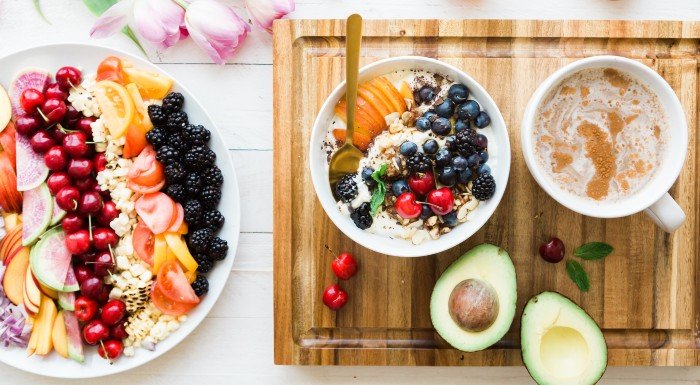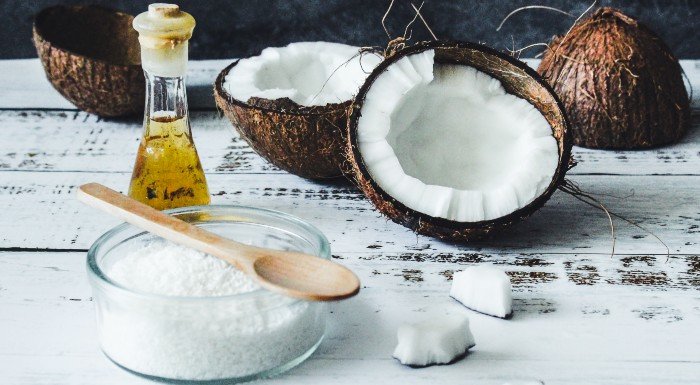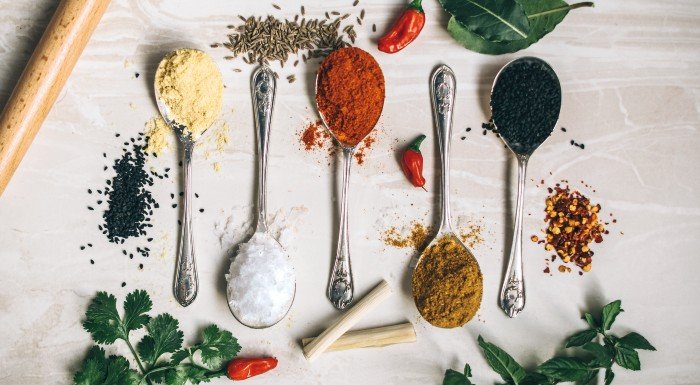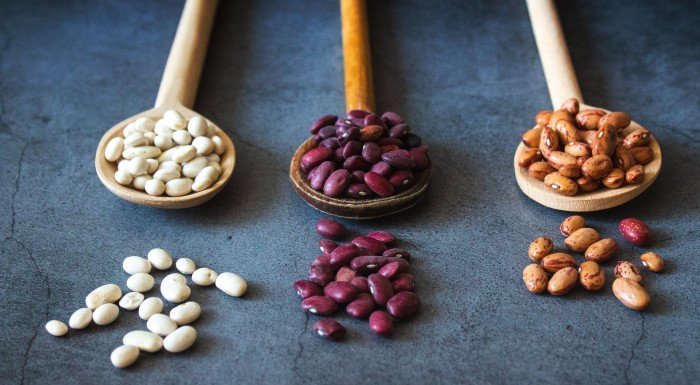Do you worry about not seeing changes in your body corresponding to the hard work in the gym? Do you feel you have stagnated and cannot lose more weight? There are many ways to influence your metabolism and give it a boost to try to get more results.
Read on to find out how food, drinks, exercise and daily habits can affect your metabolic rate.
Food
1. Calories
This point may seem counterintuitive, but your body needs fuel (calories) to be able to burn fuel (calories). As with a car engine, the body needs food to continue forward.
If the calorie consumption is too low, the body adapts to an insufficient energy input and begins to conserve it (in the form of fat) and burn muscle tissue. Additional fat and muscle loss are both factors that slow down metabolism, so make sure you are providing your body with enough food. Choosing high quality calories from energy-dense foods is the best way to manage your calorie consumption.

2. Proteins
Lean body mass (muscles) burns more calories at rest than fat. Maintaining muscle mass through exercise and an adequate calorie intake is important, but you must also make sure that there are proteins in your diet.
Muscle tissue is constantly being dismantled or rebuilt, and the presence of proteins in food is the best way to ensure that the body has the necessary resources to regenerate and maintain it over time.

3. Fats
Fat is not only a satiating nutrient, it makes food digest more slowly and makes your stomach feel fuller after eating, as specific types of fat are in fact preferred sources of energy that can accelerate metabolism.
Medium chain triglycerides, a specific category of fatty acids, have been shown to increase metabolism, due to the way they are broken down to generate energy. 1 Medium chain triglycerides are a type of saturated fat, and coconut oil is an excellent source.
Dairy products contain a reduced amount of TCMs, but are an easy way to incorporate these fats into the diet – with the added bonus of protein content. There is also TCM oil, available as a supplement.

3. Seasonings
Sauces are not only an excellent way to add flavor to a meal without adding calories – many of them also help to speed up the metabolic rate. Capsaicin, a substance found in spicy foods, has proven effects in increasing calorie burn. 2
If you’re not a fan of spicy food, similar benefits have been discovered in black pepper, cinnamon, turmeric, cardamom and ginger. Combine these spices with protein-rich food for an enhanced effect.

4. Fiber
Fiber has benefits at several levels – from improving digestion and heart health to increasing satiety, reducing excess food – and can also influence metabolism. Fiber, by definition, is a plant-based carbohydrate that the body cannot digest or absorb for energy – so it has no calories.
However, our body still tries to digest it, burning calories in the process. This is the idea behind “digestible hydrates” and the foods that are said to have “negative calories”. Although it does not work miracles, fiber is a great way to increase the number of calories we burn, with many additional benefits.

5. Vitamins and Minerals
Metabolism, being the processing of food to generate energy and waste, happens through many different types of chemical reactions throughout the body. Carbohydrates, fat and proteins are broken down by different means, all of which involve the need for certain vitamins and minerals.
Vitamin D, for example, is chronically low in many overweight people with metabolic syndrome. 3 How can we get adequate doses of all the vitamins and minerals we need in our diet ? Eating a varied diet with healthy foods. Fruits and vegetables are a diverse source of vitamins and minerals, as are animal-based foods. An easy way to guarantee variety is to “eat the rainbow”: fruits and vegetables of different colors contain different vitamins and minerals.

Drinks
1. Water
Adequate hydration is essential for all body processes – and metabolism is no exception. Healthy cells have the nutrients and water they need to perform their functions. Drinking plenty of water not only addresses our hydration without contributing unwanted calories, it makes us feel fuller and can help reduce excess food.
Research even shows an increase in lipolysis (fat burning), with an increase in water intake. 4 Preferably choose plain water instead of sugary drinks.

2. Coffee
Coffee is not only the best way to wake up in the morning, it can also be used to increase the number of calories burned. It is often used as a nootropic to increase focus and concentration. Studies show that it has a metabolism-accelerating effect on its own, but caffeine is also used as an ergogenic aid for speed and physical power.
Being able to train intensely and challenge your muscles takes time to increase muscle mass, reinforcing the impact of caffeine. 5
Some effects may also be due to a combination of other compounds that occur naturally in coffee.

3. Tea
Green tea is another nootropic also used to speed up metabolism. Many types of tea have several plant-based compounds, in addition to caffeine, which influence metabolism in different ways.
Catechins and EGCG are other important compounds found in tea, and can have a positive effect on the brain and metabolism. 6

Exercise
1. HIIT
High intensity interval training, or HIIT, is an excellent way to vary the cardiovascular training routine, incorporating alternating periods of very intense work with periods of recovery. It can be used in different ways – bodyweight exercises, such as jumps and mountaineer steps, or traditional forms of cardio training, such as jogging, cycling, rowing and swimming.
Alternating steady state cardiovascular training with HIIT sessions during training makes your muscles work harder and burn more calories, even after the workout is over. Many research studies have shown the metabolic effect and weight loss benefits of this type of training. 7

2. Strength Training
The fact that muscle tissue burns more calories than fat is known and true. Our muscles require more calories (and proteins) even when they are not being used, representing a greater “resting metabolic rate”.
Lifting weights and gaining lean mass is probably the simplest way to speed up metabolism, forcing the body to burn more calories even while we sleep. The other factors mentioned above are also taken into account here – to work properly, good nutrition, hydration and effective training are required.
3. Variety
Changing your exercise routine when it seems to be working well may seem silly, but the key to continuing to progress is to constantly challenge your body. If he gets used to the same weights and numbers of repetitions at each session, there is an adaptation and the training becomes less effective.
Keeping your body “guessing” by changing weights, repetitions and even the shape of the exercise – for example, swimming instead of running, or resistance bands instead of free weights – is an excellent way to keep interest in training and make the body have to adapt, which leads to increases in metabolism.
Habits
1. Standing
It may seem basic, but standing instead of sitting down whenever possible will make your body burn more calories. When standing, we use all the major muscles in the body (in the legs) and the core to stay upright.
Using these muscles for longer periods takes effort and can lead to significant changes in energy expenditures, compared to staying in a chair for long periods of time.
2. Sleep well
It can be difficult to remember that sometimes, but proper recovery can be just as important as exercise. Without proper rest, recovery and quality sleep, our muscles will not get back on track as quickly and will not perform to their full potential in the next training session.
Trying to sleep 8 hours is ideal, so it calculates what time you need to go to bed and develops a healthy sleep routine. Do not look at screens for at least an hour before you go to bed; a quiet and dark environment is preferable, to make your bedroom a relaxing place and promote quality sleep.
3. Stress management
Having healthy ways of dealing with stress is another key to a healthy metabolism. When we are under chronic stress for long periods of time and we have no way of dealing with the issue, it can affect our hormones and lead to slower metabolism and weight gain.
Sleep, exercise and healthy eating habits are an excellent start, but also consider other ways to deal with stress. Through the practice of mindfulness or meditation, or the habit of making confidences to a friend or family member, being able to deal with complicated situations and being mentally resistant can be as important as physical strength.

Final Message
While building muscle is a simple way to burn more calories, a boost to metabolism can be achieved in different ways. From food to everyday habits, try some of the tips we shared and keep an eye on how your body burns calories over time.

